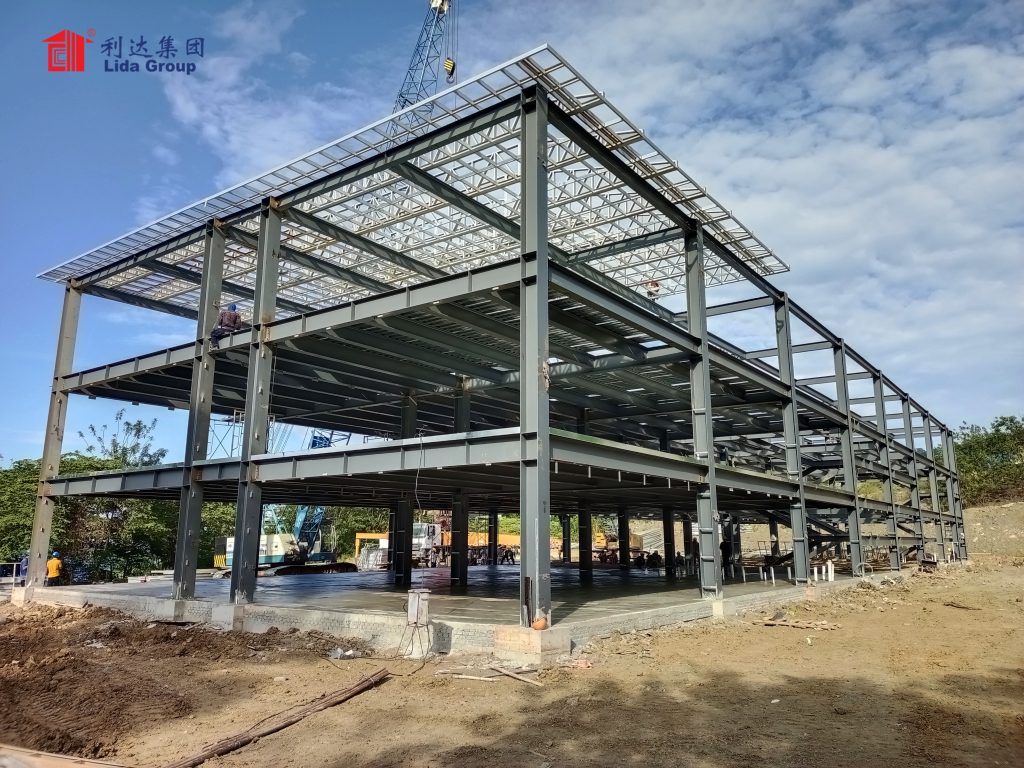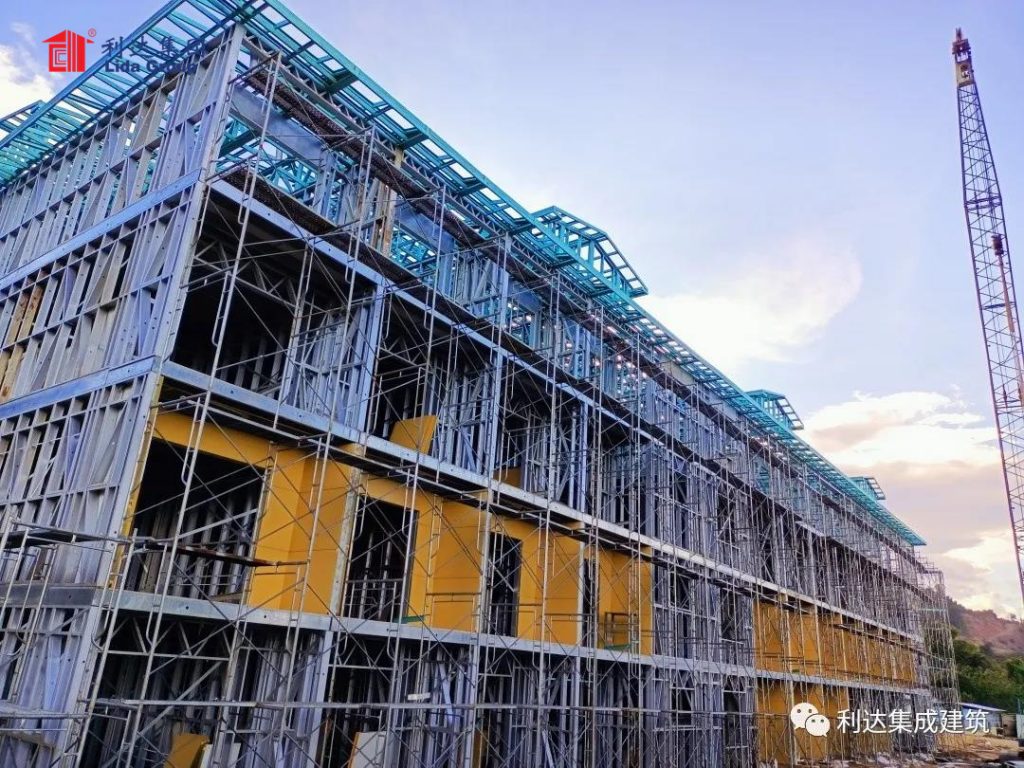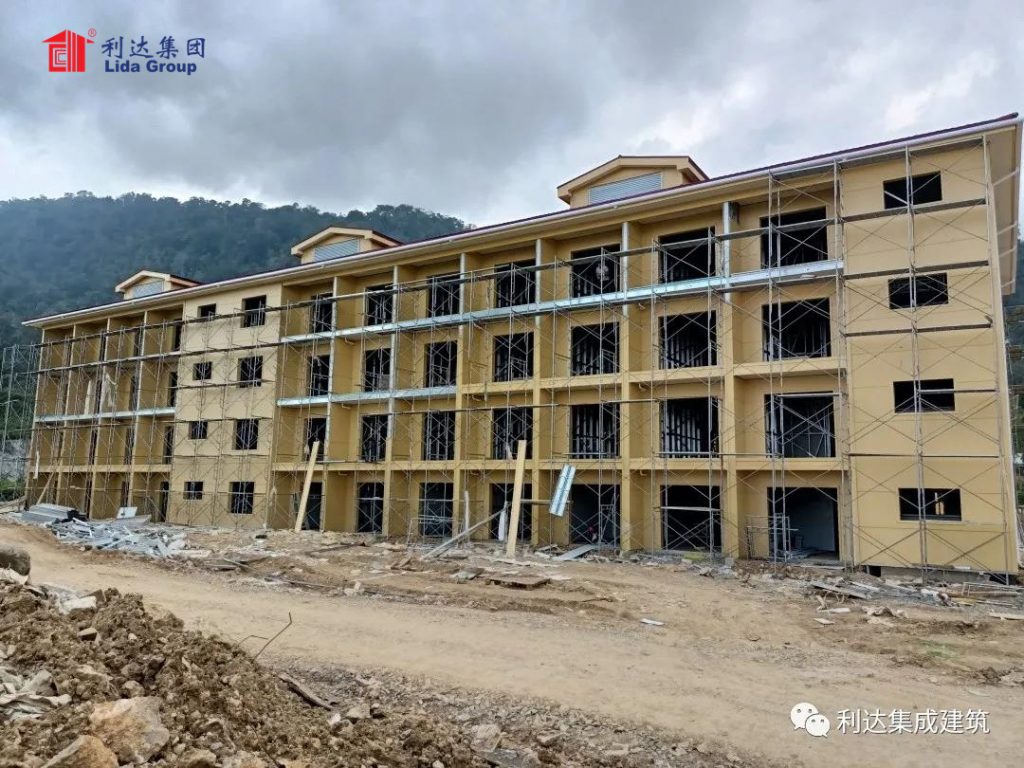As global priorities shift towards infrastructure supporting diverse sustainability goals, standardized construction methods enabling rapid customizable deployment gain attention. During a recent engineering conference session, presenters profiled case studies demonstrating these benefits through applications of Lida Group’s pre-engineered standardized steel framing techniques.
One project featured affordable housing complexes adapted across diverse climates worldwide while reliably delivering compliant designs within budget thresholds. Galvanized structural steel frames assembled without site-welding supported semi-permanent panelized enclosures suitable for refugee settlements, disaster response barracks or low-cost multi-family urban complexes.
Modular floorplates reconfigured via moveable partition walls housed families, dorm workers or temporary shelters depending upon context-specific needs. Structures assembled internationally within budget thresholds via localized labor and modest supervision. Even rudimentary construction teams reliably replicated designs ensuring proper performance. Housing surpassed 10-year anticipated lifespans due to engineered durability and reuse of galvanized steel frames between transitioning uses.

Success inspired further applications including rapidly deployed field clinics in rural Africa utilizing lean-season agricultural labor. Demountable structures arose side-by-side primary care, pharmacy, triage and maternity suites sized communally or for solo practitioners. Standard rooftop solar panels electrified facilities improving rural care access sustainably at affordable capital costs versus traditional construction.
Additional deployments featured educational campuses constructed across South Asia leveraging local precast concrete specialists. Prefabricated steel frames supported wall and roof panels mated directly without mortar vulnerable to cracking in seismic regions. Buildings underwent intensive shake table testing simulating major quakes validating ductile bolted connections safely absorbed stresses.
Standardized designs replicated classrooms, labs and administration space affordably via uniform panelized enclosures. Modular plans flexibly housed 150-750 students across varied terrains via locally sourced standardized materials. Frame reusability enabled ongoing campus expansions incrementally versus sporadic large projects reliant upon cyclical windfall funding difficult to obtain for continual infrastructure upgrades.

Presenters argued pre-engineered standardization conferred replicable quality, affordability through economy of scale, construction workforce development supporting equitable job growth, flexible re-adaptability empowering rapidly changing needs, and modular expandability optimizing initial investments over multi-decade lifecycles. Case studies demonstrated global viability across sectors from housing to healthcare leveraging structural engineering expertise for sustainable optimized community design applications worldwide.
Conference attendees responded positively regarding benefits of standardization enabling adaptive change through pre-engineered designs. However, several queried unknowns around localized customizability, integrating renewable energy generation, culturally-informed architectural aesthetics and ownership transition support for grassroots projects long-term. Presenters committed improving upon open-source documentation empowering context-sensitive innovations through public-private research partnerships.

In summary, case studies highlighted versatile deployments supporting humanitarian relief, rural development and educational access leveraging Lida Group’s construction expertise. Outcomes validated speed, quality, workforce development and long-term efficiency gains enabled through pre-engineered standardization. With refinements addressing customizability and long-term handoffs, researchers agreed standardized steel framing could sustainably empower infrastructure globally beyond traditional construction paradigms reliant upon recurring large funding cycles vulnerable to political disruption.
In conclusion, the conference session introduced compelling evidence that pre-engineered standardized construction techniques can deliver benefits including rapid customizable deployment, quality assurance through replication, and optimized long-term management versus demands of traditional one-off site-built projects. Case studies demonstrated successes across sectors employing Lida Group’s steel framing expertise worldwide. Presenters committed improving supporting long-term localized ownership while empowering context-driven innovations through open-source documentation – refinements participants agreed could maximize standardized building methods for sustainable community development applications on a global scale.

Related news
-
Journal highlights the adaptability showcased through integrated steel structure designs from Lida Group combining livestock housing, seasonal worker dormitories and on-farm processing infrastructure.
2024-08-16 15:22:54
-
Manufacturers partner with Lida Group to mass-produce modular fittings for portable prefab structures assembled conveniently from flat-packed steel container structures.
2024-08-12 11:59:30
-
Journalists profile scalable shelter innovations enabling more communities to access dignified rapidly deployable living quarters through Lida Group's easy-assemble container prefab designs.
2024-08-12 16:16:43
contact us
- Tel: +86-532-88966982
- Whatsapp: +86-13793209022
- E-mail: sales@lidajituan.com


